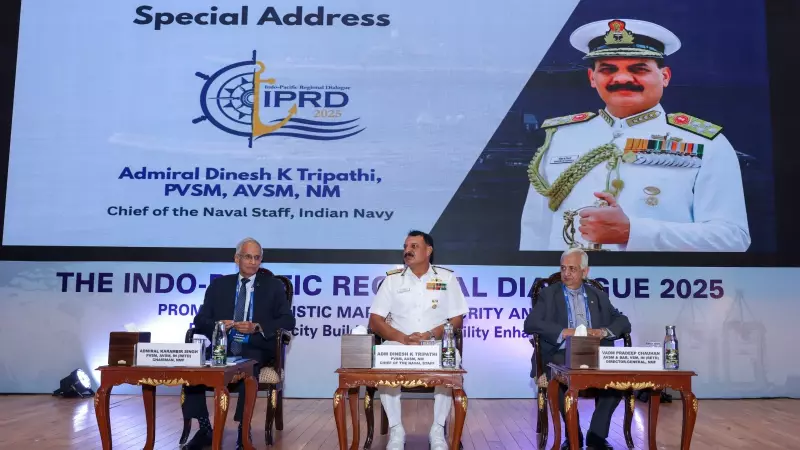
In a significant address that redefines India's naval doctrine, Navy Chief Admiral R Hari Kumar has declared that maritime security must evolve beyond mere threat containment to embrace a more comprehensive and collaborative approach.
New Vision for Maritime Security
Speaking at the prestigious MILAN 2024 naval exercise in Visakhapatnam, Admiral Kumar emphasized that maritime security cannot be confined to defensive measures alone. He articulated a forward-looking vision where security encompasses economic prosperity, environmental sustainability, and regional cooperation.
Beyond Traditional Defense Paradigms
The Navy Chief's remarks mark a strategic shift in India's maritime thinking. "We are moving from a threat-based to a capability-based approach," he stated, highlighting how this transformation aligns with India's growing economic stature and global responsibilities.
Key Pillars of Comprehensive Security
Admiral Kumar outlined several critical components of this expanded security framework:
- Economic Dimension: Protecting sea lanes crucial for India's trade and energy security
- Environmental Protection: Addressing climate change impacts and marine pollution
- Regional Cooperation: Building partnerships with neighboring navies
- Technological Advancement: Leveraging cutting-edge capabilities for maritime domain awareness
India's Growing Naval Capabilities
The address came against the backdrop of India's expanding naval footprint. Admiral Kumar revealed that Indian warships are now deployed across the Indian Ocean Region, from the Gulf of Aden to the Malacca Strait and Southern Indian Ocean, demonstrating the navy's extended reach and operational capability.
MILAN 2024: A Platform for Cooperation
The MILAN exercise, featuring participation from over 50 countries, serves as a perfect embodiment of this collaborative security approach. The event has grown from five participating countries in 1995 to becoming one of the largest naval gatherings in the region.
Addressing Contemporary Challenges
Admiral Kumar specifically highlighted emerging threats that require collective action:
- Maritime terrorism and piracy
- Illegal fishing and trafficking
- Cyber threats to maritime infrastructure
- Natural disasters and humanitarian crises
The Navy Chief's vision represents a significant evolution in India's maritime strategy, positioning the Indian Navy not just as a security force, but as a key enabler of regional stability and economic growth in the Indian Ocean Region.





